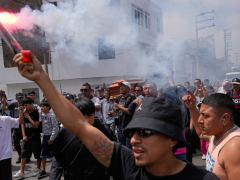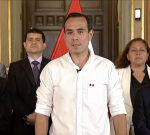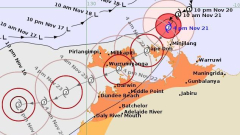The state of emergency lifts constitutional rights, including the right to protest, amid popular unrest over the rise in extortion and killings.
Published On 22 Oct 2025
Peru’s Interim President Jose Jeri has declared a state of emergency in the capital, Lima, to stem a wave of protests that contributed to the recent downfall of his predecessor.
In a televised message on Tuesday, Jeri said the emergency in the city would last 30 days.
Recommended Stories
list of 3 items
- list 1 of 3Photos: Peru’s Gen Z rallies against President Boluarte
- list 2 of 3Peruvian police arrest suspects over livestreamed femicide in Argentina
- list 3 of 3Peru’s Congress votes to remove President Boluarte as crime grips nation
end of list
“Wars are won with actions, not words,” the president said, adding that he is planning a new approach to fighting crime that he described as going “from defence to offence”.
Under the state of emergency, the government can send the army to patrol the streets and restrict freedom of assembly and other rights.
Al Jazeera’s Mariana Sanchez, reporting from Lima, said the announcement comes after six days of uncertainty over whether the interim government would push ahead.
In the decree formally declaring the emergency, the government did not mention how it intended to gather critically needed intelligence to curb extortion cases, which are estimated at 18,000 this year, up 30 percent from last year, Sanchez said.
The rise in extortions has also led to an increase in killings in recent years. Between January and September, police authorities reported 1,690 homicides, compared with 1,502 during the same period of 2024.
“The state of emergency will lift constitutional rights and people will not be able to protest,” Sanchez said.
Dina Bo





